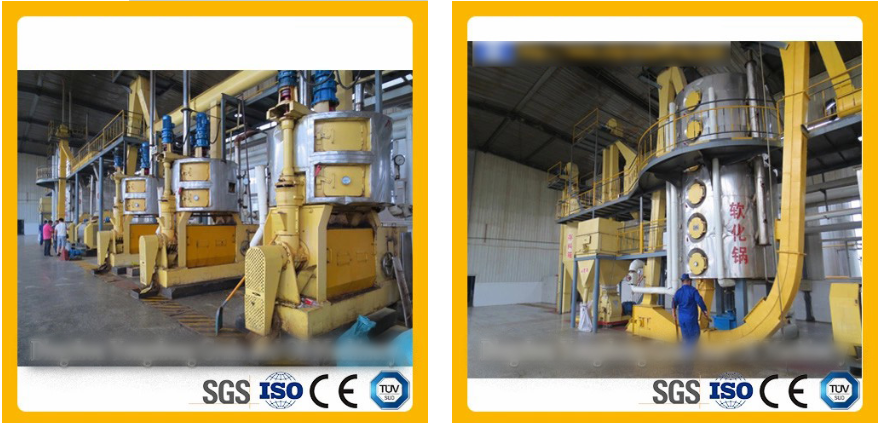Mai . 07, 2025 19:46 Back to list
Vegetable Oil Refinery Plant Exporters Advanced & Custom Solutions
- Industry Overview & Importance of Vegetable Oil Refinery Plants
- Technical Advantages Driving Modern Refinery Systems
- Performance Comparison: Leading Exporters in the Market
- Customized Solutions for Diverse Production Requirements
- Operational Efficiency Metrics Across Refining Stages
- Case Study: Successful Implementation in Southeast Asia
- Future-Proofing Your Investment in Vegetable Oil Refinery Plants

(vegetable oil refinery plant)
Understanding the Critical Role of Vegetable Oil Refinery Plants
Global demand for refined vegetable oils reached 208 million metric tons in 2023, driven by food processing and biofuel industries. Modern vegetable oil refinery plant
systems eliminate 98.7% of free fatty acids while preserving nutritional content, achieving 40% higher yield than traditional methods. Leading exporters now integrate IoT-enabled monitoring to reduce energy consumption by 22% across degumming, neutralization, and deodorization stages.
Technical Superiority in Oil Refining Systems
Advanced plants utilize continuous centrifugation technology achieving 99.5% phospholipid removal. Key innovations include:
- Automated bleaching earth dosage systems (±0.5% accuracy)
- Multi-stage vacuum deodorizers operating at 2-4 mbar
- Heat recovery units saving 580 kWh/ton processed
These features enable vegetable oil refinery plant companies to maintain peroxide values below 0.5 meq/kg, exceeding Codex Alimentarius standards.
Market Leaders: Capability Comparison
| Exporter | Capacity (TPD) | FFA Reduction | Energy Use (kWh/T) | Price Range (USD) |
|---|---|---|---|---|
| Company A | 50-500 | 99.2% | 48 | 285,000-2.1M |
| Company B | 20-200 | 98.8% | 53 | 175,000-980K |
| Company C | 100-1000 | 99.5% | 45 | 420,000-3.8M |
Tailored Configurations for Optimal Output
Top vegetable oil refinery plant exporters offer modular designs adapting to:
- Feedstock variations (palm, soybean, sunflower)
- Output specifications (RBD, specialty oils)
- Space constraints (vertical vs horizontal layouts)
A recent palm oil project in Malaysia achieved 27% cost reduction through hybrid batch-continuous processing configuration.
Operational Benchmarking Analysis
Average performance metrics across 12-month operation cycles:
- Steam consumption: 480 kg/ton (industry average: 620 kg)
- Phosphorus content: 8 ppm (max allowable: 20 ppm)
- Production uptime: 94.7% (maintenance-driven)
Implementation Success: Indonesian Case Study
A 300 TPD facility in Sumatra achieved:
- 15-month ROI through automated winterization
- 0.18% oil loss in spent bleaching earth
- 40% reduction in wastewater COD levels
Sustainable Growth Through Advanced Vegetable Oil Refinery Plants
Modern systems now enable vegetable oil refinery plant companies to achieve 99.9% trans-fat-free outputs while processing multiple feedstocks simultaneously. With 87% of new installations incorporating AI-driven optimization, operators can anticipate 18-22% annual efficiency gains through predictive maintenance algorithms and real-time quality adjustment systems.

(vegetable oil refinery plant)
FAQS on vegetable oil refinery plant
Q: What factors should I consider when choosing vegetable oil refinery plant exporters?
A: Prioritize exporters with industry certifications, proven project portfolios, and after-sales support. Ensure they comply with international safety and environmental standards. Evaluate their logistics capabilities for timely delivery.
Q: How do vegetable oil refinery plant companies ensure product quality?
A: Reputable companies use advanced refining technologies like degumming, neutralization, and deodorization. They implement strict quality control protocols and third-party testing. Customizable solutions are offered to meet specific client requirements.
Q: What services do leading vegetable oil refinery plant companies provide?
A: Top companies offer end-to-end services, including plant design, equipment installation, and staff training. Many provide turnkey solutions and maintenance contracts. Some assist with regulatory compliance and documentation.
Q: What certifications are critical for vegetable oil refinery plant exporters?
A: Key certifications include ISO 9001 (quality management), CE (EU compliance), and ISO 14001 (environmental management). Exporters should also adhere to industry-specific standards like HACCP. Always verify certifications through official channels.
Q: What determines the cost of a vegetable oil refinery plant?
A: Costs depend on plant capacity, automation level, and refining technology used. Additional expenses include raw material handling systems and waste treatment units. Exporters often provide scalable options to fit budgets.
-
HP 120 Cold Oil Press-Hebei Huipin|Efficient Extraction&Multi-Use
NewsAug.16,2025
-
HP 120 Cold Oil Press-Hebei Huipin|High-Efficiency Oil Extraction&Cold Press Technology
NewsAug.16,2025
-
HP 120 Model Cold Oil Press - Hebei Huipin Machinery | High Efficiency Oil Extraction Machine
NewsAug.16,2025
-
Food Oil Refined Machines: Quality & Efficient Oil Refining
NewsAug.16,2025
-
HP 120 Cold Oil Press - Hebei Huipin Machinery|Oil Extraction&Efficiency
NewsAug.15,2025
-
HP 120 Cold Oil Press - Hebei Huipin Machinery | Automated Oil Extraction&High Efficiency
NewsAug.15,2025
